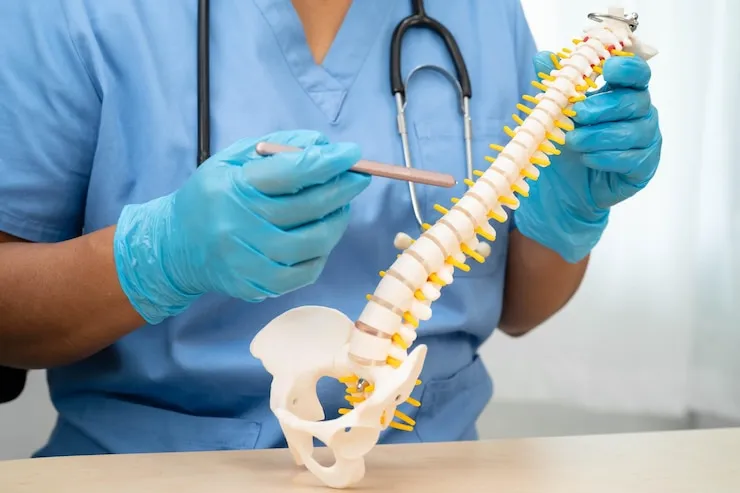Aaron Jackson
Disc Replacement Surgery: A Modern Approach to Spinal Care
Degenerative disc disease is a common condition that affects the spine. As the discs between the vertebrae wear down, they can cause pain, stiffness, and numbness. Traditionally, spinal fusion has been the primary surgical treatment for this condition. However, disc replacement surgery has emerged as a promising alternative, offering the potential for preserving spinal motion and reducing recovery time.
Understanding Degenerative Disc Disease
Degenerative disc disease is a natural process of aging that affects the discs in the spine:
- Disc Structure: The spinal discs act as shock absorbers between the vertebrae.
- Degeneration: Over time, the discs lose water content, become less flexible, and can herniate or bulge.
- Symptoms: Pain, stiffness, numbness, and weakness in the back, neck, or limbs.
Disc Replacement Surgery
Disc replacement surgery involves removing the damaged disc and replacing it with an artificial disc:
- The Procedure: A surgeon makes an incision to access the affected disc, removes the damaged disc, and inserts an artificial disc.
- Artificial Disc: The artificial disc is designed to mimic the natural movement of a healthy disc.
- Benefits: Preservation of spinal motion, reduced pain, and faster recovery compared to spinal fusion
Conditions Treated with Disc Replacement
Disc replacement is primarily indicated for:
- Degenerative Disc Disease: When conservative treatments fail to alleviate pain.
- Herniated Discs: In cases of persistent pain caused by a herniated disc.
- Spinal Stenosis: When the spinal canal narrows, putting pressure on nerves.
Advantages of Disc Replacement Over Spinal Fusion
Disc replacement offers several advantages compared to spinal fusion:
- Preservation of Motion Maintains the natural flexibility of the spine.
- Faster Recovery Shorter hospital stays and quicker return to normal activities.
- Reduced Pain Less postoperative pain and stiffness.
- Delayed Fusion May delay or prevent the need for subsequent spinal fusion.

Risks and Considerations
Disc replacement surgery is not suitable for all patients:
- Eligibility Criteria Specific criteria, such as age, overall health, and the location of the damaged disc, must be met.
- Potential Complications Like any surgery, there are risks of infection, bleeding, and nerve damage.
- Long-Term Outcomes The long-term durability of artificial discs is still being studied.
Recovery and Rehabilitation
Recovery from disc replacement surgery typically involves:
- Hospital Stay** Usually a short hospital stay.
- Pain Management** Medication to control postoperative pain.
- Physical Therapy** Gradual return to activities with physical therapy guidance.
- Follow-Up Care** Regular check-ups to monitor progress and healing.
Disc replacement surgery has shown promise as a treatment option for degenerative disc disease and other spinal conditions. While it is not suitable for everyone, it offers the potential for improved quality of life and faster recovery compared to traditional spinal fusion.

 Telehealth Visits Available
Telehealth Visits Available
